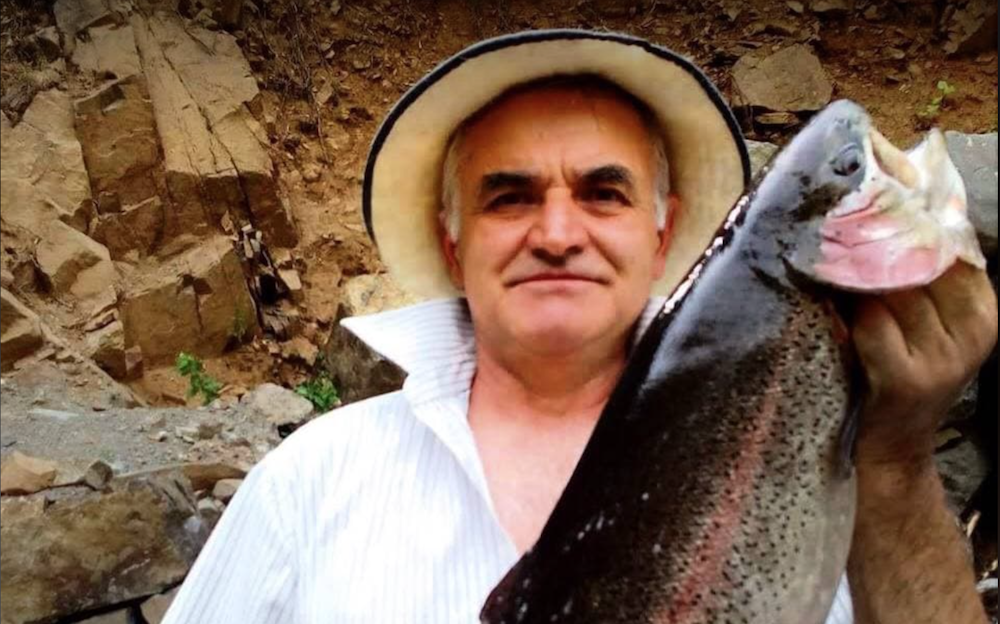Who bears responsibility for the customs crisis in South Ossetia: local authorities, Russia, or the "Georgian lobby"?
The customs crisis in South Ossetia persists, impacting both local businessmen and ordinary citizens, with authorities yet to find a resolution. Issues persist at the Nizhny Zaramag checkpoint, particularly concerning the importation of food from Russia.
Despite the government’s claim to have negotiated with the Russian side to eliminate export duties, challenges persist. South Ossetian residents still report delays in cargo shipments and complications with paperwork.
- South Ossetia hit by increase of customs duties on goods from Russia
- South Ossetia wants to become part of Russia, local politicians say
The issue once again spiraled out of the authorities’ control when a video of Sergei Tedeev, a resident of Tskhinvali, surfaced on social networks. The video captured Tedeev emotionally throwing packages of carbonated drinks out of his car’s trunk. The trigger for this reaction was the Russian customs officers’ prohibition on transporting soft drinks through the Nizhny Zaramag checkpoint.
“15 crates were not allowed through. How long do we have to endure this? Now I want to address Gagloev – our president and leader. Why are these problems not being resolved? Why can’t we transport products from one Ossetia to another (i.e., from North to South – JAMnews)? We only talk about integration and being one Ossetia,” expressed Tedeev in the video.
He later explained that he had purchased juices worth three thousand rubles (about $33) for personal consumption from a wholesale market in Vladikavkaz. Russian customs officials deemed this cargo to be commercial and insisted on its proper registration.
Tedeev mentioned that this is not the first time he has faced such obstacles. Following the previous incident, he lodged a complaint with the head of South Ossetia’s customs committee, Aleksandr Chochiev.
Legal illiteracy
Alexander Chochiev attributed Tedeev’s situation to his failure to provide an export declaration:
“This incident could have been avoided if he had filed a declaration in accordance with Decision 263, which does not require payment of customs duties.
He further explained that when a single item is imported in substantial quantities, it is considered a commercial shipment, and the decision in such cases is at the discretion of the Russian customs inspector.
Moreover, he stated that the South Ossetian authorities should have assisted Tedeev in processing the declaration. Chochiev paid mere lip service to the commitment of support and urged businesspeople and individuals to address “all questions” to their fellow countrymen at the border.
Earlier, Chochiev faced severe criticism from the business community for accusing South Ossetian entrepreneurs of legal illiteracy and deflecting all responsibility onto them.
The tension between authorities and entrepreneurs persisted despite a meeting organized by the government with the participation of Alexei Popov, the representative of the Russian Federal Customs Service (FCS) in South Ossetia.
Popov urged entrepreneurs to pay closer attention to the requirements of customs legislation and elucidated the FCS requirements for the simplified transportation of small quantities of goods across the Russian border:
“Small batches of goods under Decision No. 263 can be brought into South Ossetia from Russia not only by individuals but also by entrepreneurs. The form for filling out documents under Agreement No. 263 simplifies the registration process. Currently, the documentation is being transferred to an electronic system.”
Officials refuted the businessmen’s claims about an increase in VAT when importing goods to South Ossetia through the Russian border and provided them with copies of the government decree containing the rates of customs duties.
“Conspiracy of the Georgian lobby”
However, there is another, even more scandalous video involving Sergei Tedeev and Russian customs officers.
During the altercation, Tedeev asks, “Isn’t there a possibility to eliminate these problems between the two Ossetias?”
In response, the customs officer demands that the video be stopped and knocks the phone out of the hands of the person filming.
In the comments under this video, social network users express outrage at the inability of South Ossetian President Alan Gagloev to improve the living conditions of his citizens and reminisce about the “pre-Gagloev” times when Russian customs officers and border guards treated South Ossetians with respect.
One participant in the discussion hints at growing social tension and the likelihood of anti-government protests in Tskhinvali:
“There is no need to import anything. People will get hungry, and they will sort everything out.”
Meanwhile, as the South Ossetian authorities shift the responsibility for the confusion from Russian customs officers to local businessmen, conspiracy theories are spreading in Tskhinvali. According to some of JAMnews’ interlocutors, problems with the importation of products from Russia are being artificially created by the “Georgian lobby.”
Even one of the South Ossetian political analysts, who wished to remain anonymous, believes so. According to his version, Georgian lobbyists in Tskhinvali and Moscow are trying to force South Ossetian businesses to leave the Russian market and secure connections with Georgian businessmen.
“They say different things. As if it is cheaper and easier to import goods from Georgia. Rumors are spreading that allegedly this scenario suits some circles in Moscow, which count on the loyalty of Georgia and hope that Tbilisi will give up European integration if it sees the benefits of contacts with Tskhinvali without obligations to recognize the sovereignty of South Ossetia,” says the political analyst.
According to supporters of this version, the inaction and indifference of Gagloev’s government to problems at the customs and periodically voiced proposals by some deputies to open transit with Georgia without preconditions “look not groundless and allow the existence of such a conspiracy.”




















